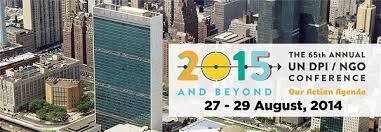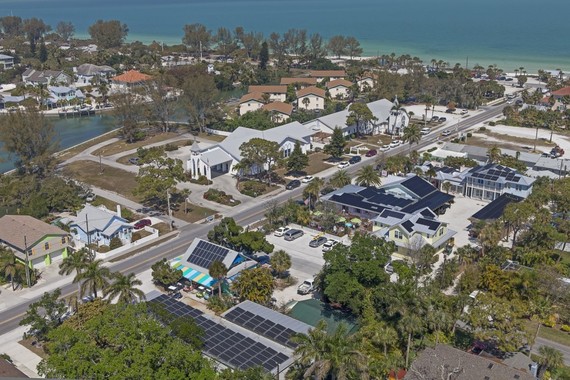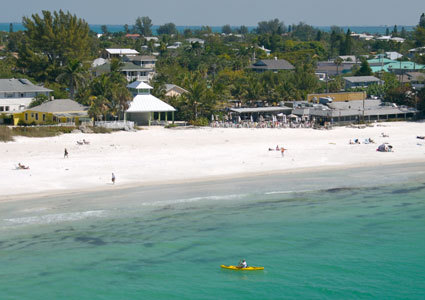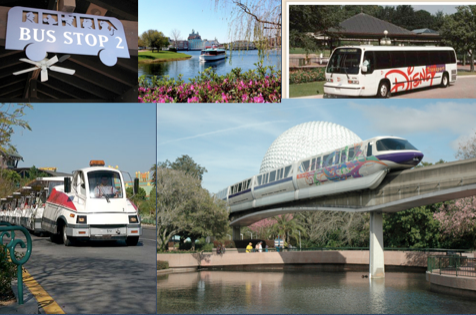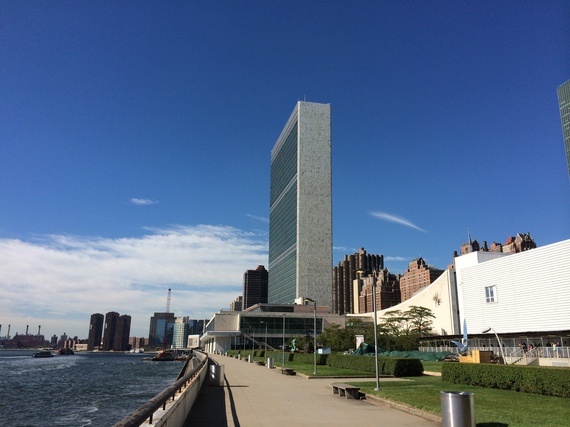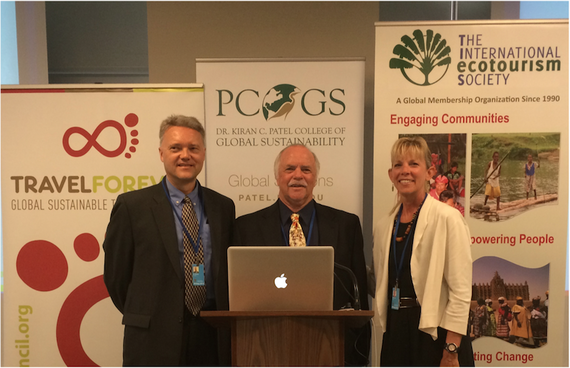The United Nations Department of Public Information recently held a conference titled "Beyond 2015: An Action Agenda by Non-governmental organizations" at U.N. Headquarters in New York. One of the key purposes of the conference was to provide input for the UN Post-2015 Development Agenda proposed sustainable development goals (SDGs) that will succeed the 15-year framework of UN Millennium Development Goals, set to expire in 2015.
The conference resulted in an Outcome Document composed of a Declaration and a Resource Document -- the two parts may be read independently or as a unit -- on the 17 proposed SDGs that have been suggested by an intergovernmental working group that worked for the last 18 months and that included inputs from people all over the world.
The Outcome Document provides specific goals and objectives, all of which can be related to sustainable tourism.
Three highlights related to sustainable tourism include:
- Tourism and the teaching of sustainable tourism in universities were acknowledged as an essential prerequisite for world peace. The specific language states: " We recognize that world peace and human security is crucial for development. Peaceful societies require strong enabling mechanisms for preventing violence and violent conflict by promoting peace through tourism and the teaching of sustainable tourism in universities...."
Acknowledging sustainable tourism as important to the proposed U.N. SDGs took participation and support of members of the sustainable tourism community to turn suggested words into language that could be accepted in the Declaration, which was approved by acclamation at the closing session of the Conference..
The process of how sustainable tourism is being viewed as a "Mega-goal" is instructive for future participation of the sustainable development community as public policy evolves into an interrelated network of linked objectives, rather than a vehicle that continues a "silo" approach to issues affecting people and planet.
The story begins last May when long-time friend and colleague Richard Jordan visited the University of South Florida (USF) Patel College of Global Sustainability, where I teach sustainable tourism. During this visit I had the opportunity to introduce Richard to the work I was doing in sustainable tourism and suggested that I take him to EPCOT at Walt Disney World to see some models of sustainable tourism in action.
Shortly before his visit, Richard informed me that he had been appointed as Chair of the Conference Drafting Subcommittee for a Conference Declaration and asked if I would author a section for the Elements Paper of an Initial (or "Zero") Draft on Sustainable Tourism. Richard explained that the Elements Paper would be prepared on a number of topics, as well as on topics NOT well-represented in the intergovernmental discussion.
Thus, the Conference Declaration, which was supposed to be visionary and actionable, would provide a framework for Non-governmental organizations (NGOs) around the world to comment and submit additional input. It was envisioned that Conference participants would simply "fill in the blanks" that had not been articulated. But that is just the start of the story. In order to achieve a far broader buy-in from NGOs and civil society representatives, the Chairman of the Conference, Jeff Huffines, a representative of CIVICUS, decided to invite 25 experts to contribute input to a draft two-page declaration that was drawn from contributions of the experts and the Elements Document.
The participants at the Conference would have multiple opportunities, through the Roundtable thematic presentations and through four Town Hall sessions of 90 minutes each, to contribute their input. And so I started to develop a number of ideas that might fit into the Declaration.
But back to the role of sustainable tourism experts.
Richard had served as Conference Chair in 2007 for the 60th UN DPI/NGO Conference, "Climate Change: How It Impacts Us All," and consequently Richard knew how the drafting process for the Declaration this year would proceed. Click Here To View Zero Draft on Sustainable Tourism
Richard suggested that in order to strengthen the role of sustainable tourism in the Post-2015 landscape that I might submit a proposal for a sustainable tourism workshop to be part of the UN conference. We thus would have the Declaration, the report of the Conference itself, and an extensive summation of all 66 workshops, published later this year by the UN Dept. of Public Information.
We were on our way!
In developing a proposal for a workshop I sought out assistance of colleagues Randy Durband, Chair of the Global Sustainable Tourism Council who could share the new Global Criteria for Sustainable Tourism, and Dr. Kelly Bricker, President of The International Ecotourism Society (TIES) who recently co-authored a recent book titled "Sustainable Tourism & the Millennium Development Goals: Effecting Positive Change."
In addition, I reached out and received assistance from the Walt Disney Company Animal, Science, and Environment team to provide me updated information for my case study as well as to verify accuracy of my presentation.
Then I submitted a proposal for a workshop that would have the sponsorship of the Global Sustainable Tourism Council, The International Ecotourism Society, the WHALE Center, the USF Patel College of Global Sustainability, the University of Utah Parks Recreation & Tourism Dept, and the Royal Academy of Science International Trust.
The conference committee, Chaired by Elisabeth Shuman, received almost 150 workshop proposals from around the world. About one out of every three proposals were accepted by the Conference Workshop Subcommittee. Many workshops were accepted on the condition that they share their time with other workshops on similar themes.
The demand for space became a major enterprise, with 16 total workshops held on the opening day, 32 workshops held the second day of the conference, and 16 on the third day. Richard had advised "You don't want to go head to head on Day 2 with 32 workshops, and on the last day, it will be difficult to get people focused on a workshop." And Richard was right!
Our workshop was not only accepted, we were placed on the agenda as the lead off workshop the first day of the conference, resulting in twice the time of other workshops in the conference.
This simple idea proved to be very valuable as it gave members of the UN NGO community the opportunity to be educated about sustainable tourism and the important role it plays in the proposed new Sustainable Development Goals.
Following our workshop proposal acceptance, Richard Jordan who I asked to moderate the workshop, visited Florida once again both to fine tune the workshop presentation and as a moderator, to learn cognitively and experientially about the issues of sustainable tourism.
Richard and I had a chance to provide a preview of the workshop to graduate students in sustainable tourism at the USF Patel College for Global Sustainability, from whom we received valuable feedback on what would be the keynote presentation during the workshop.
We then had the opportunity to participate in a "sustainability tour" organized by Nan Summers of the USF College of Hospitality and Technology Leadership, of the Anna Maria Island. The community has a LEED Platinum certified district that includes zoning to protect small businesses, a solar energy program with building construction and renovation that produces zero carbon emissions. ECHO, a global leader in tropical agriculture has helped the community to successfully grow fruits and vegetables in the florida heat. The fruit and vegetables are grown in front of business for both beautification and to produce healthy food for the community.
Next on the agenda that day was lunch, but not just any lunch. We had a sample of a "sustainable meal" at the Sandbar Restaurant, where owner Ed Chiles shared how the restaurant was contracting with local organic food sources, and how he worked out agreements with nearby fishermen who used sustainable fishing practices.
Richard and I then spent two days at Walt Disney World Animal Kingdom Villas - Kidani Village where Richard was able to experience many of the Disney sustainability practices that were described in detail as part of my workshop presentation. Most of interest to Richard were the seeming myriad number of sustainable transport modalities used throughout the Disney theme parks, from river boats to small excursion vehicles.
All of these experiences not only assisted Richard in his role as moderator but also gave him a strong foundation in making the arguments for sustainable tourism to the 25 expert members of the Declaration Drafting Subcommittee. The Experts were coordinated by Richard's Co-Facilitator, Maruxa Cardama, who volunteered her efforts along with the Experts, over the course of many hours both during the conference and over 15 hours at night and lunchtimes.
The sustainable tourism community might do well to tell its story of its work of impactful sustainability practices both to policy makers and the general public so that these best practices might become more frequent in our communities and personal lifestyles.
The next week our team arrived at the U.N. headquarters in New York with high anticipation of a successful workshop right after the opening plenary session of the conference.
The workshop agenda included in part:
- Richard Jordan opened by welcoming participants and sharing a proclamation from Gale A. Brewer, Manhattan Borough President, who issued a formal proclamation declaring August 27, 2014 as "Sustainable Tourism Day" in Manhattan, in recognition of our workshop, the catalytic role of USF Patel College of Global Sustainability, and the importance of sustainable tourism for all 2500 participants attending the 65th Annual UN DPI/NGO Conference.
I had hoped to communicate that as we consider the future beyond the millennium development goals, it is important to harness the potential of tourism to make positive contributions to society and assist in conservation efforts."
The following videos were presented at the workshop.
Randy Durband
Dr. Kelly Bricker
Dr. David Randle
The workshop was received very well by the NGO community. One of the comments from participants was in part:
"Your presentation was one of the best I've ever seen, and the hands-down highlight of all the programs I attended at the United Nations Conference on 2015 and Beyond. I was awed by the scope of Disney's commitment to so many diverse aspects of sustainability, as well as the highly creative and cost-effective solutions it has implemented.
It left me wishing that our local governments would learn to operate with such dedication to the good of the public and the planet. .... I arrived thinking we were not capable of meeting the present environmental challenges with existing technology - but I left realizing that "imagineering" is still in full force and leading the way to a sustainable future." ... - Deborah Moldow, NGO Representative at the United Nations, World Peace Prayer Society.
With the positive feedback experience, Randy, Kelly, and I began drafting language to propose for consideration in the Conference Declaration.
On Wednesday evening, an updated version of the Declaration was posted on the Conference website with not a word on sustainable tourism; however, Richard, who facilitated content for the Declaration, assured me that it was too early to include everything we suggested, that we needed to be strategic thinkers and to wait until Thursday night, when another draft would be posted, and for the final Town Hall meeting on Friday morning, just before the Declaration would be finalized.
I then attended several of the Town Hall sessions on the Conference Declaration and spoke from the floor to suggest both language and rationale for sustainable tourism to be included in a significant way in the final Declaration.
Richard, Maruxa, and Jeff Huffines took notes, but there was no response to my comments.
Participants were given the opportunity on Friday morning to make small suggested amendments, but not new goals or new paragraphs as the document was being finalized and the drafters were looking for mostly final touches and/or small refinements of thought.
Once again I spoke from the floor and suggested that in Goal 15 that the word sustainable tourism be added in one sentence. To my pleasant surprise Ms. Maruxa Cardama stated that the committee had received feedback on sustainable tourism and that some language would be included in the declaration.
As with any Declaration adopted in the UN system, fine-tuning of the document occurs after the conference, along with formatting. Richard informed me that one of the Experts had himself inserted language that had been suggested in my interventions, and that there had been no problems in inserting other ideas.
Some notes on the language:
- "Teaching sustainable tourism at universities" was acknowledged in the very first part of the Declaration in the "Vision" section, in part due to tourism being the fastest growing industry in the world and the prospect that many new jobs will be created in the industry. Advanced degrees from universities will be an asset in developing the multi-sectoral expertise in sustainable tourism that professionals will need in their portfolio. The value of teaching sustainable tourism was also demonstrated in the workshop through the presentations of Dr Kelly Bricker, Interim Chair, University of Utah Parks Recreation & Tourism and Dr. David Randle, University of South Florida Patel College for Global Sustainability Sustainable Tourism Concentration Director.
In reflecting on these significant accomplishments, Richard Jordan states: "Words in Declarations issued at the UN will simply remain on paper. All of us must implement action for change. The contribution of Dr. Randle to the success of the Conference and the Outcome Document, and his ability to create exceptional value for the future SDGs through this "Mega-goal" of sustainable tourism, cannot be underestimated."
For me personally, to have the opportunity to participate in the UN process and to contribute to making a difference was a very rewarding experience. I am particularly thankful to all who contributed this process especially: Richard Jordan, representative of the Royal Academy of Science Intl. Trust, Randy Durband and the GSTC, Kelly Bricker and TIES, Nan Summers who organized the Anna Marie Island tour, Ed Chiles who is providing one of the best sustainable food models for tourism in the world, Jackie Ogden, Kim Carlson, and members of the Walt Disney Animal, Science and Environment Team who are providing models for the global community for sustainable tourism, students, staff, and faculty at the USF Patel College of Global Sustainability who provided valuable feedback and encouragement for this process, the WHALE Center Board of Directors who supported my participation, and all the 2500 delegates at the conference who are working together to make a better world.
One of the key lessons in the process of bringing sustainable tourism to the United Nations is that cooperative action from many sources can make a significant difference in our world.
The conference action supports this years World Tourism Day theme "Tourism & Community Development" to be celebrated later this week. The U.N. Conference action of encouraging tourism to meet the gSTC criteria will further tourism and community development around the world.

